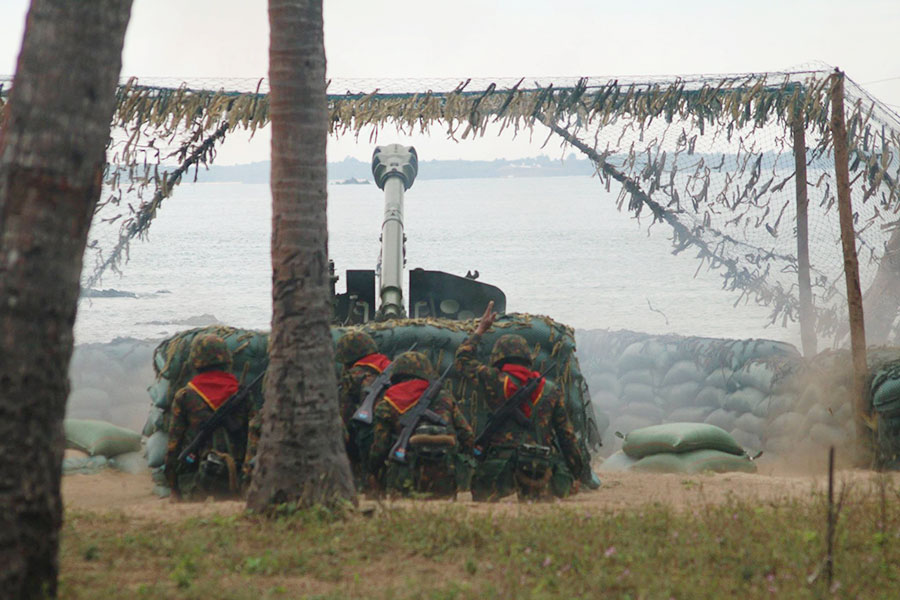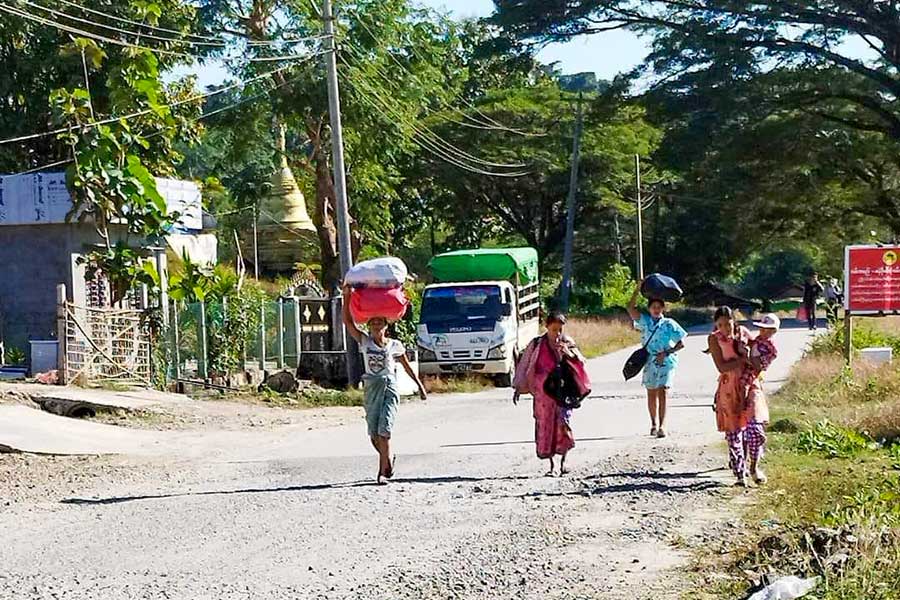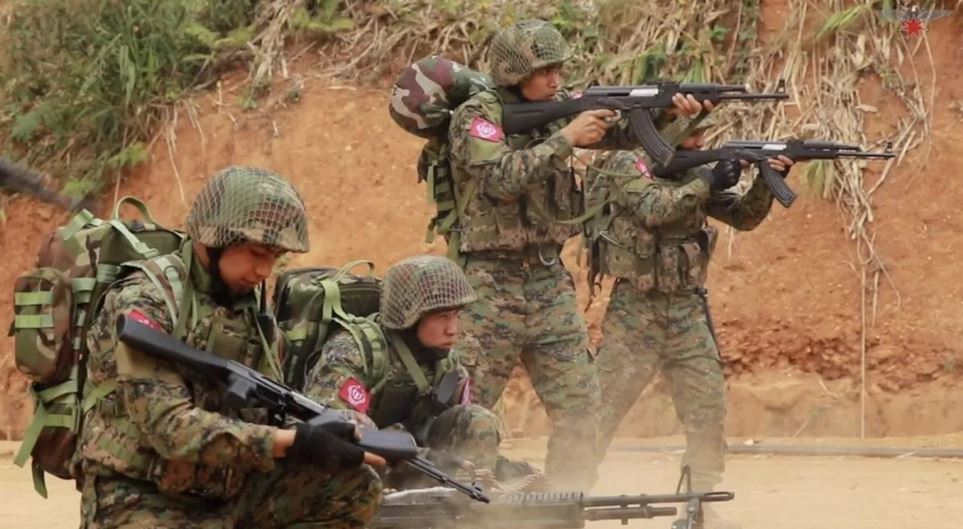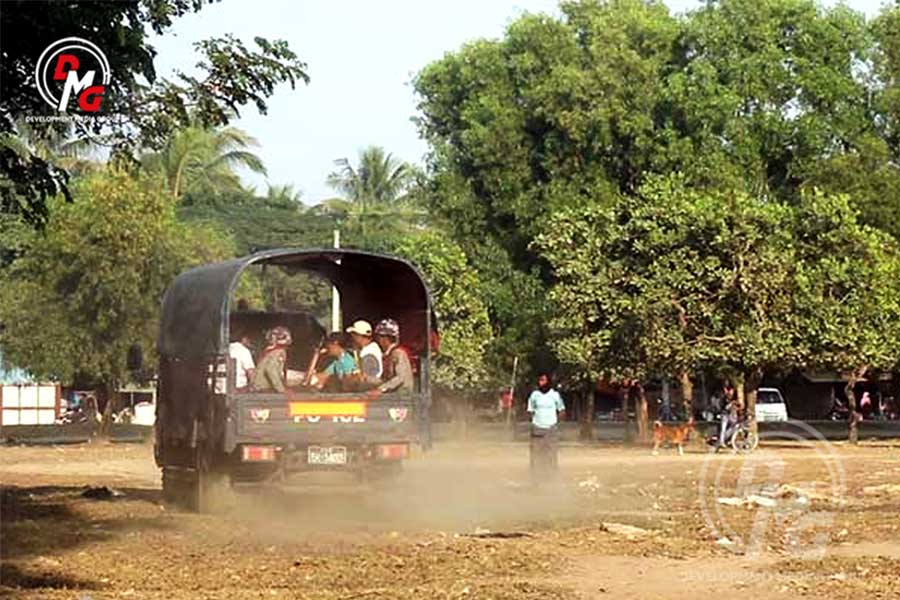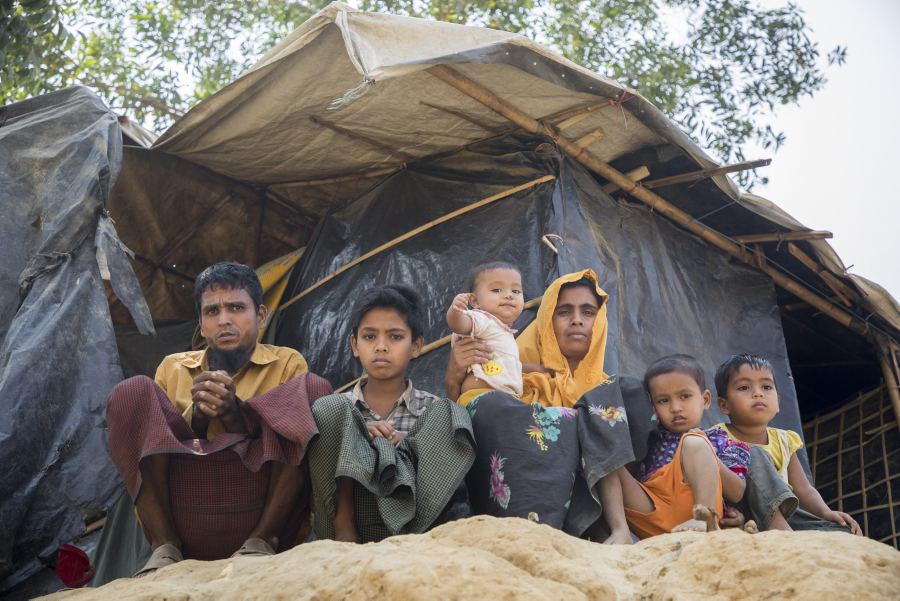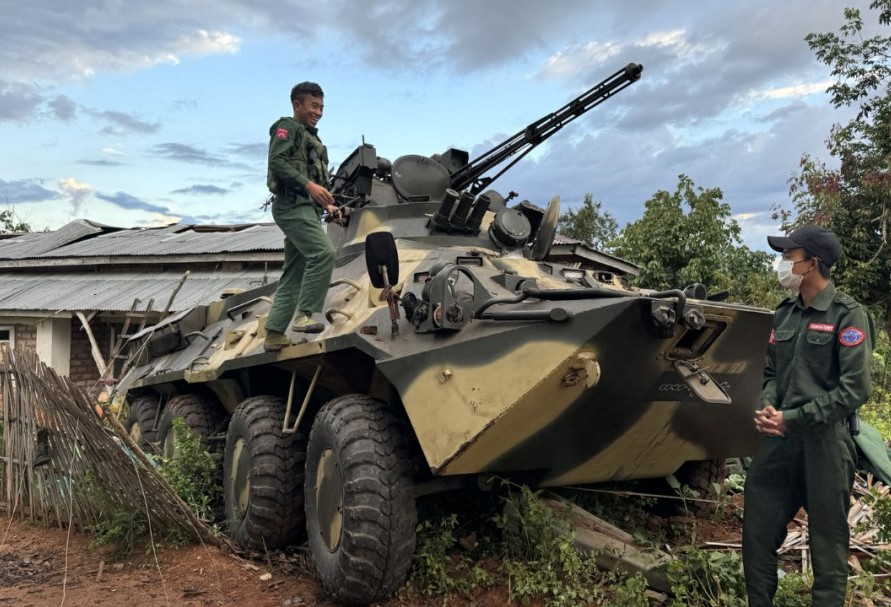Charitable groups efforts thwarted as IDPs struggle
On April 6, one charity group was stopped by local police in Sittwe because they collected funds without permission.
06 Apr 2019
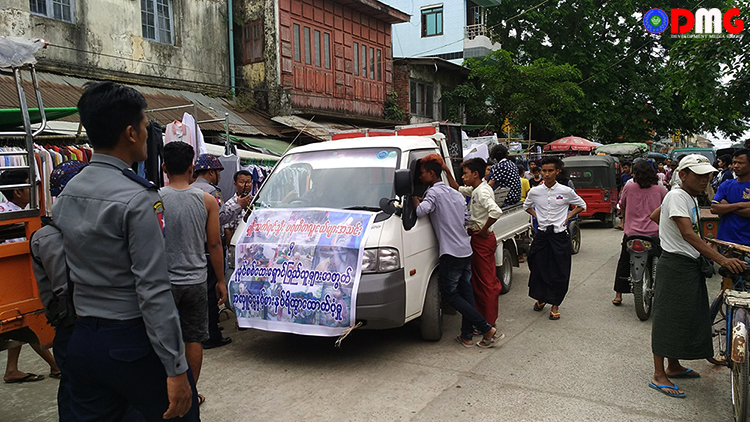
Khin Tharaphy Oo/DMG
April 6, Sittwe
The regional government’s restrictions on relief organizations could lead to greater suffering for IDPs, said Myadasaung Sayardaw, who is providing aid for IDPs.
On April 6, one charity group was stopped by local police in Sittwe because they collected funds without permission.
“I think restrictions on charity groups’ activities for IDPs is an act of oppression from all sides. They block charity groups in different ways so they cannot furnish charitable assistance to help IDPs. They just take photos of IDPs, relief groups are stymied by local officials when it comes to providing much sought-after items to IDPs,” Myadasaung Sayardaw said.
The number of IDPs in Rakhine State has reached to nearly 30,000 and they are in dire need of emergency aid such as foods, clothing and other relief items. That’s why CSOs and volunteers are providing relief for them.
The regional government, meanwhile, ordered that local authorities and departments are not allowed to collect funds on their own without authorized permission.
“According to a press release from the government administration, government departments are not allowed make donations to the IDPs, yet as a government it should not restrict offered donations to IDPs,” Wan Lark Foundation director Khaing Kaung San said.
International organizations have been restricted humanitarian access to Buthidaung, Maungdaw, Rathedaung, Ponnagyun and Kyauktaw Townships in early January.
International organizations pointed out that restrictions on them could lead to trouble for IDPs while local relief organizations suggested that local government should step up their efforts and allow more relief aid for IDPs.
Related News _
Youth charity group blocked by police
Buthidaung’ battles push IDPs numbers up
Around 8,000 IDPs in Rakhine face food shortage

